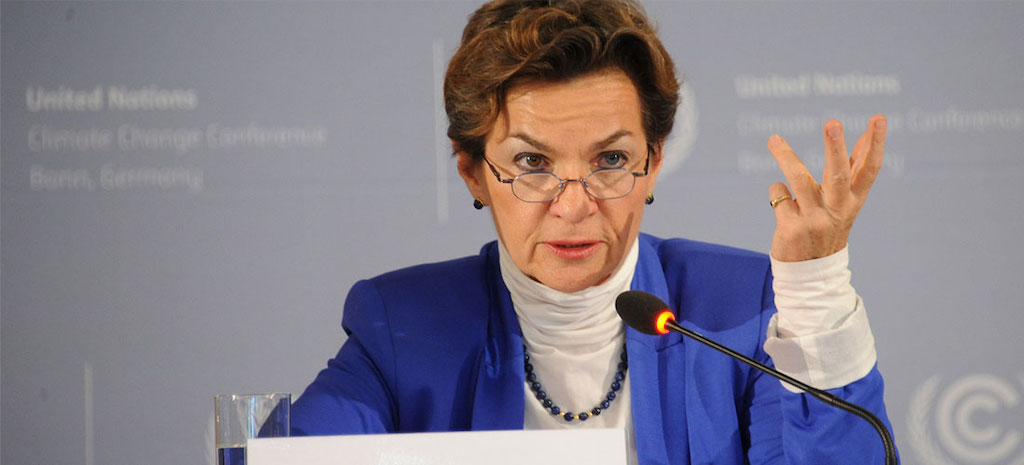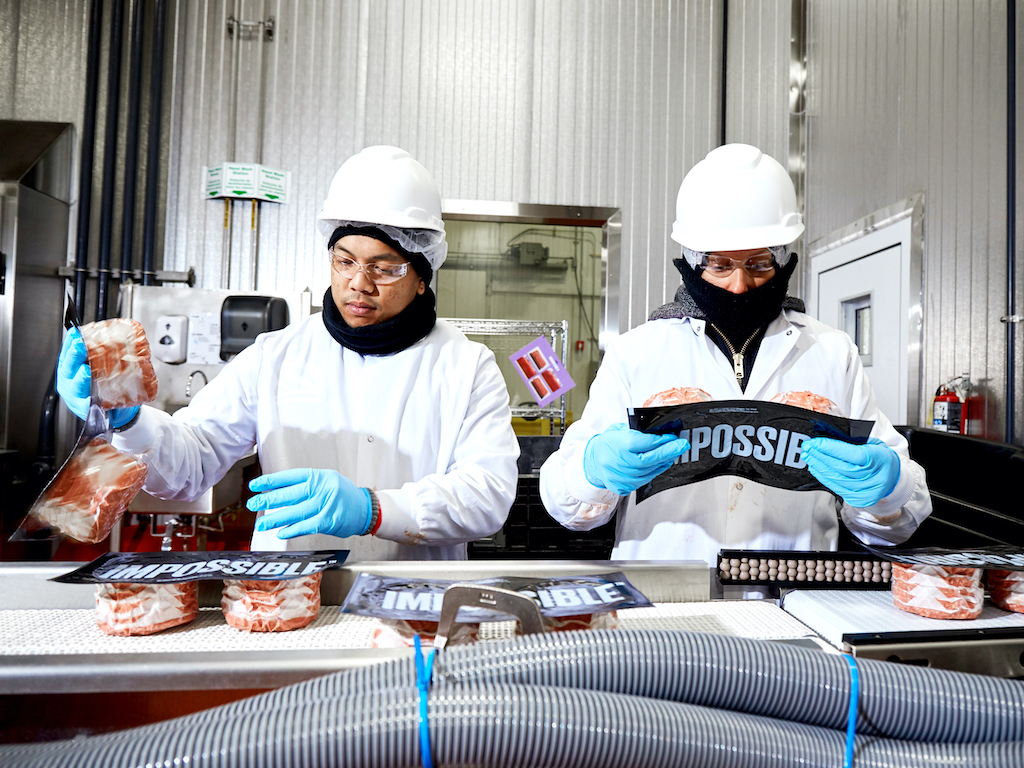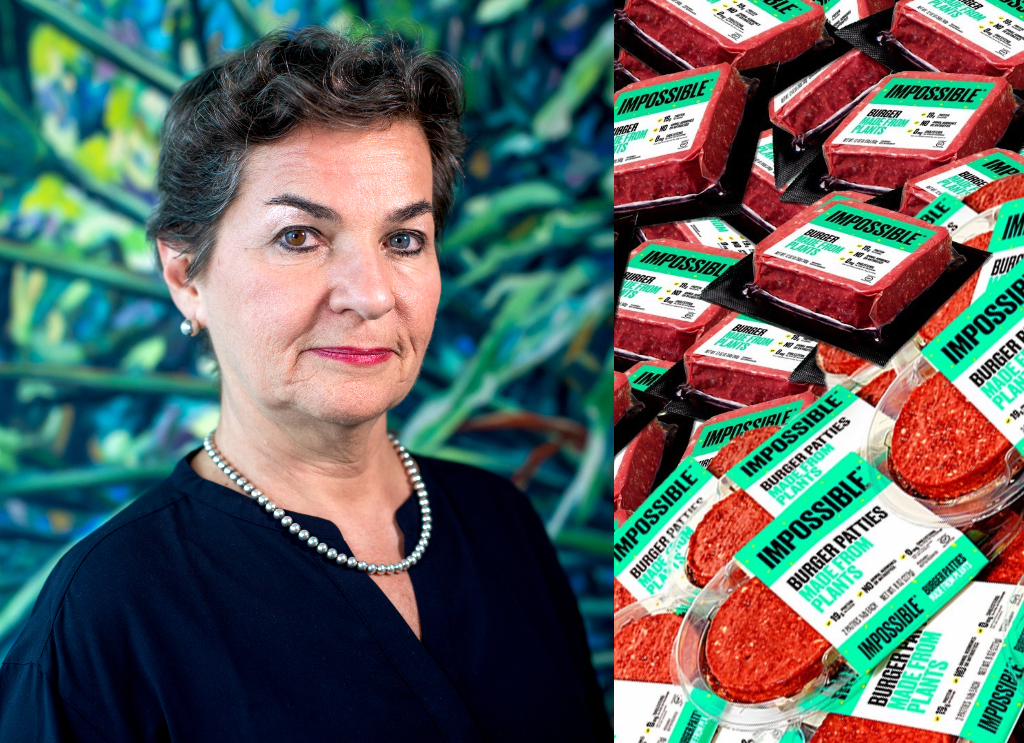4 Mins Read
Renowned climate expert and international diplomat Christiana Figueres, who formerly led the U.N. Paris agreement talks, has joined Impossible Foods as its newest board member. With her decades of experience in climate change policy and sustainable development, Figueres will help guide the food tech on its environmental mission.
Impossible Foods has announced that Christiana Figueres, the former executive secretary of the UNFCCC who led the negotiations that resulted in the Paris accord and current founding partner of climate organisation Global Optimism Group, has joined its board of directors. Figueres will bring to the table her deep knowledge of climate change policy and collaborative diplomacy to support Impossible Foods’ continued expansion and mission to provide a solution for unsustainable animal agriculture.
“I’ve devoted my career to fighting climate change with optimism and collaboration, and joining the board of Impossible Foods enables me to amplify my lifelong environmental advocacy,” said Figueres in a statement. “The company’s innovative and market-driven approach empowers people to be part of the solution to our climate crisis.”
As well as being a world famous author, podcaster and speaker, Figueres is a major figure in the climate activist world, respected by scientists, government officials and NGO leaders alike, and lauded for her achievements in managing the international climate change negotiations while serving as Executive Secretary of the UN Framework Convention on Climate Change (UNFCCC). Her alliance with one of the alt protein world’s pioneers marks something of a change in the fight against climate change, sending a clear message that reducing emissions must involve changing how we eat, not to mention validating the mission of many a food tech startup, who all promise that mass consumption of their products will drastically reduce the CO2 released into the atmosphere and help curb the environmental ills that pervade industrial livestock farming.
Patrick Brown, CEO and founder of Impossible Foods, commented that the food tech is “thrilled to have her guidance,” adding that Figueres’ experience and insights “will be invaluable in our fight to save the planet”.

I’ve devoted my career to fighting climate change with optimism and collaboration, and joining the board of Impossible Foods enables me to amplify my lifelong environmental advocacy.
Christiana Figueres
“Christiana has tremendous influence as a global leader in the movement to avert catastrophic climate change,” Brown continued, saying that her addition to the board comes at a critical moment for the company’s aggressive international expansion.
The Silicon Valley food tech has experienced record-high sales over the past year, as the coronavirus pandemic turns consumers away from conventional meat more than ever before.
According to the company’s data, 92% of sales of its famous bleeding plant-based Impossible Burger is directly displacing animal-derived meats and the trend has driven the “largest operational expansion” in the food tech’s 10-year history – including launching in retail channels across Hong Kong and Singapore for the first time.
“One year ago, the company’s flagship Impossible Burger was available in about 150 grocery stores. Now it’s in about 17,000 stores in all 50 states – a more than 100x increase in 2020 alone,” said the firm in a press release.

Christiana has tremendous influence as a global leader in the movement to avert catastrophic climate change.
Patrick Brown, Founder & CEO, Impossible Foods
With recent statistics showing that first-time buyers of all plant-based meat brands plan on continuing with their animal-free meat purchases even when the pandemic subsides, the food tech envisages a major ramping up of its presence around the world and says that it will continue to introduce lower prices over time as demand and supply scales.
“The company’s hypergrowth has profound implications for the environment,” said Impossible Foods in a release on the announcement of Figueres’ board membership, noting that its burger substitutes, while containing comparable levels of iron, B vitamins and protein, uses 96% less land, 87% less water and 89% less greenhouse gas emissions to produce compared to conventional ground beef from cows.
Globally, emissions from animal agriculture make up 18% of the annual total, topping the combined greenhouse gases produced by all transportation combined, from cars to planes.
Scientists have repeatedly called for a plant-based shift in order to combat climate change. In a landmark international study last year, experts warned that even if fossil fuels were to be eliminated immediately, the Paris agreement goals would still be out of reach without a drastic reduction in high-emissions meat and dairy-heavy diets.
Lead image courtesy of Jimena Mateo / Impossible Foods / designed by Green Queen Media.




